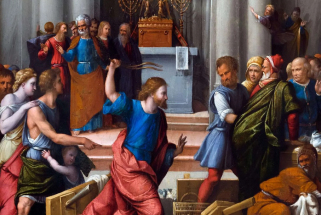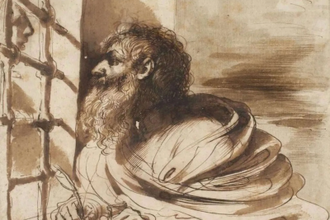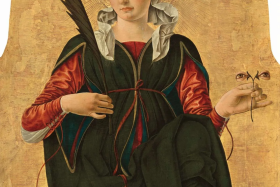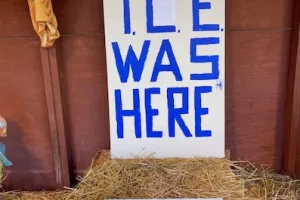Gospel in Art: The master praised the dishonest servant
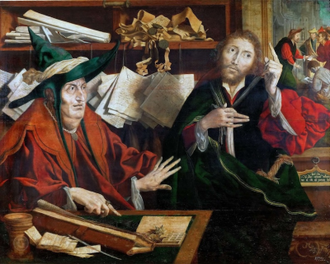
Parable of the Unjust Steward, by Marinus van Reymerswaele, 1540 © Kunsthistorisches Museum, Vienna
Source: Christian Art
Gospel of 8 November 2024
Luke 16:1-8
Jesus said to his disciples:
'There was a rich man and he had a steward denounced to him for being wasteful with his property. He called for the man and said, "What is this I hear about you? Draw me up an account of your stewardship because you are not to be my steward any longer." Then the steward said to himself, "Now that my master is taking the stewardship from me, what am I to do? Dig? I am not strong enough. Go begging? I should be too ashamed. Ah, I know what I will do to make sure that when I am dismissed from office there will be some to welcome me into their homes."
Then he called his master's debtors one by one. To the first he said, "How much do you owe my master?" "One hundred measures of oil" was the reply. The steward said, "Here, take your bond; sit down straight away and write fifty." To another he said, "And you, sir, how much do you owe?" "One hundred measures of wheat" was the reply. The steward said, "Here, take your bond and write eighty."
'The master praised the dishonest steward for his astuteness. For the children of this world are more astute in dealing with their own kind than are the children of light.'
Reflection on the painting
The main characters in Jesus' parables are often far from perfect. For instance, we think of the younger son in the parable of the prodigal son, who made poor choices but ultimately returned home, even if out of desperation. These flawed characters frequently have some redeeming quality, however small. In today's Gospel, we encounter another less-than-admirable figure: a dishonest steward, careless with his master's property. Yet, even he possesses a redeeming trait.
Perhaps Jesus is reminding us that no one is beyond redemption. The steward's redeeming feature was his shrewdness, his ability to act decisively when faced with a crisis, ensuring that he would have support after losing his job. Jesus' comments suggest that, while we shouldn't emulate his dishonesty, we can learn from his decisiveness. Following Jesus often requires us to take bold, purposeful action to stay on the path he calls us to. Sometimes a moment of crisis in our own lives can help us to look again at our priorities so as to bring them more into line with what God desires for us.
Our painting titled "The Parable of the Unjust Steward" by Marinus van Reymerswaele, painted circa 1540, depicts the steward in conversation with his master. The master is sitting on the left. The steward appears to be negotiating with or explaining himself to his master. The figures are dressed in elaborate Renaissance clothing, hinting at the themes of wealth, power, and commerce. Surrounding the figures, we see piles of coins, ledgers, or chests, further visual symbols of wealth. The steward is portrayed with a look of calculated concern, representing his cunning ability to think quickly and act in his own interest. He is pointing upwards, almost implying he has received divine inspiration to get him out of the situation. The steward decides to forgive the debts of some of his master's debtors to garner favour with them in an attempt to make provisions for his own now precarious future. This is the scene depicted in the background on the right: we see the steward returning a borrower's note to the grateful debtor doffing his cap.
LINKS
Gospel in Art: https://christian.art/
Today's Reflection: https://christian.art/daily-gospel-reading/luke-16-1-8-2024/



